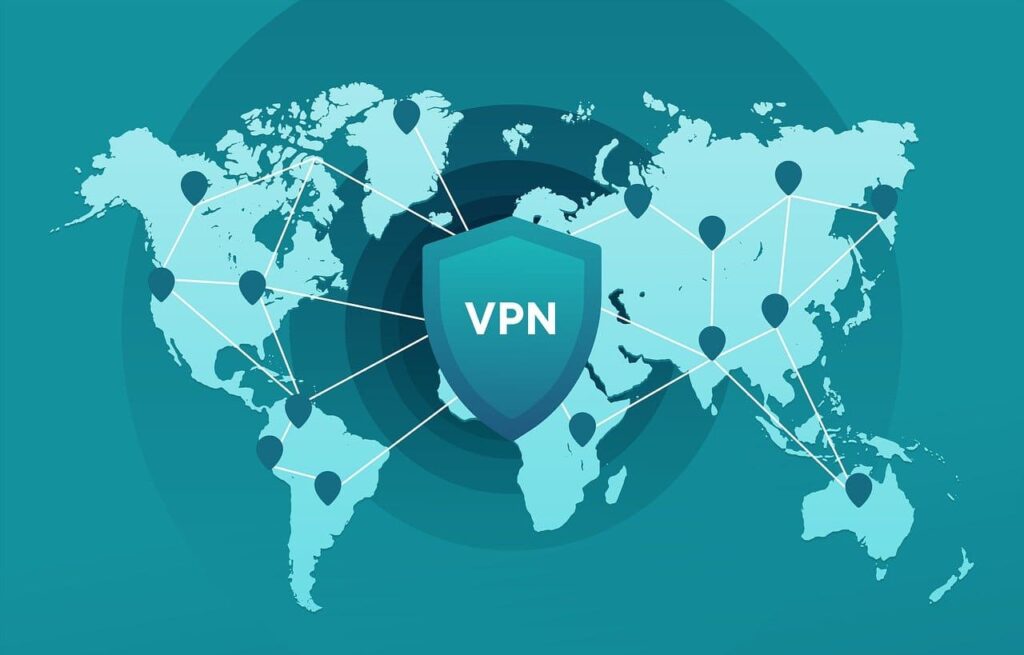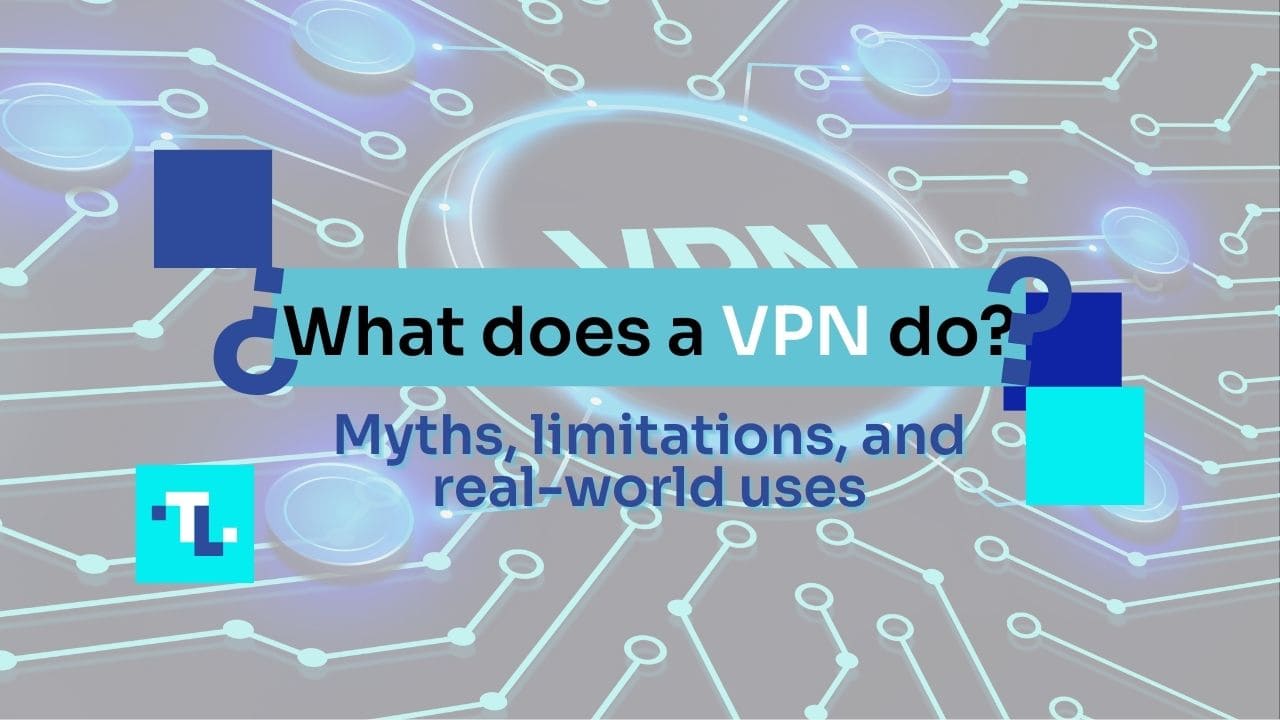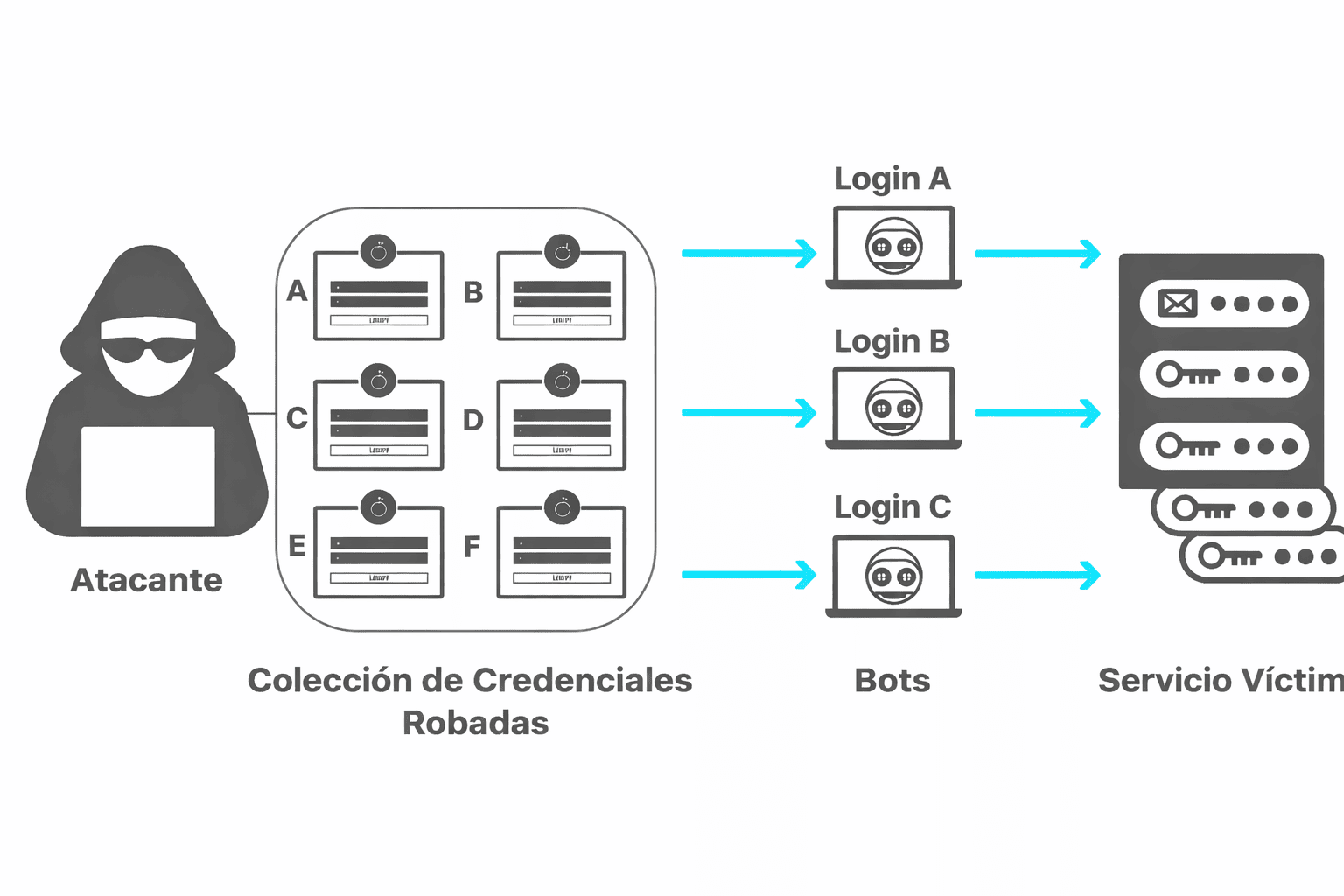A VPN encrypts your traffic and hides your IP, but it doesn’t make you invisible. Here we break down what a VPN does and doesn’t do, clarify its limits, and give you practical criteria for choosing and using one well: public Wi-Fi, remote work, travel, and streaming.
What a VPN is and how it works
A VPN (Virtual Private Network) creates an encrypted “tunnel” between your device and a remote server. Everything that leaves your phone or computer travels inside that tunnel to the VPN server; from there, websites and apps see the server’s IP, not yours. That’s why, from the outside, it looks like you’re connecting “from somewhere else.”
Tunnel, IP, and server: the essentials
Encryption: turns your data into something unreadable to third parties (e.g., on public Wi-Fi).
IP masking: websites no longer see your real IP, only the VPN server’s.
Remote routing: your traffic “jumps” to the country/city of the chosen server.
Fast, secure protocols: WireGuard vs. OpenVPN
WireGuard: modern, lightweight, and typically faster/more stable on mobile and changing networks.
OpenVPN: time-tested and widely compatible (there’s a reason many companies require it).
IKEv2/IPsec: handles network changes well (cellular to Wi-Fi), useful on the move.
Túnel cifrado, IP y servidor: lo esencial
Cifrado: convierte tus datos en algo ilegible para terceros (p. ej., en un Wi-Fi público).
Cambio de IP: las webs ya no ven tu IP real, sino la del servidor VPN.
Ruta remota: el tráfico “salta” al país/ciudad del servidor elegido.
Protocolos rápidos y seguros: WireGuard vs OpenVPN
WireGuard: moderno, ligero y normalmente más rápido/estable en móviles y redes variables.
OpenVPN: veterano, muy compatible (si tu empresa exige este estándar, es por algo).
IKEv2/IPsec: aguanta bien cambios de red (de datos a Wi-Fi), útil en movilidad.

What a VPN DOES do
It hides your IP and encrypts your traffic (with caveats)
A VPN hides your real IP and encrypts your connection. This reduces exposure to your ISP, network admins, and looky-loos in cafés or airports. That said—as we always tell clients—“a VPN hides your IP and encrypts your traffic, but it doesn’t replace good digital hygiene.” If you sign in to a site with your account, the site knows it’s you, VPN or not.
It protects you on public Wi-Fi and trims some tracking
On open networks, a VPN adds an extra security layer. It also makes IP-based profiling harder (ads, rough geolocation). Zero tracking? No: cookies, browser fingerprinting, and scripts still exist if you allow them.
Travel and geoblocks: when it works and when it doesn’t
Some streaming platforms block VPN IPs or use advanced detection. Often it works; other times you’ll see errors or limited catalogs. It depends on the provider, the server, and the platform’s policies.
What a VPN DOESN’T do
Total anonymity: why it doesn’t exist
Common myth: “A VPN makes you completely anonymous.” No. Even if the VPN hides your IP, cookies, logins, and fingerprinting (screen size, fonts, extensions…) can identify you. If you want real privacy, start with your behavior (strict browsing modes, cookie clearing, blockers, separate profiles).
Malware, fraud, and login tracking: things it doesn’t cover
Malware/phishing: a VPN is not an antivirus or an application firewall.
Social-engineering fraud: if you hand over data, no tunnel will save you.
Account-based tracking: if you log in, the platform recognizes you even if your IP changes.
VPN vs. Proxy vs. SmartDNS vs. Tor: what to use and when
VPN: encrypts all device traffic and changes your IP at the system level. Ideal for security on public Wi-Fi, remote work, and everyday use.
Proxy (HTTP/SOCKS): routes traffic for specific apps and rarely offers true end-to-end encryption. Useful for one-off cases, not for general security.
SmartDNS: doesn’t encrypt; “tricks” services for content location purposes. Fast, but offers no privacy.
Tor: multi-hop routing for strong anonymity, at the cost of speed and compatibility. For highly sensitive cases.
My practical rule of thumb: security and daily use → VPN; strict anonymity → Tor (+ discipline); region-specific access without privacy → SmartDNS; app-specific needs → proxy.
| Característica | VPN | Proxy | SmartDNS | Tor |
|---|---|---|---|---|
| Cifrado a nivel de sistema | Sí | No | No | Sí |
| Cambio de IP | Sí | Sí | No | Sí |
| Velocidad media | Alta | Alta | Muy alta | Baja |
| Anonimato fuerte | No | No | No | Sí |
| Uso recomendado | Seguridad diaria | Apps puntuales | Región de contenido | Privacidad extrema |
Tabla comparativa con cinco columnas: característica y respuesta para cada tecnología (VPN, Proxy, SmartDNS y Tor).
Real-world performance: speed, ping, and how to optimize
A VPN adds encryption and an extra “hop,” so speed usually drops (a bit) and ping increases—especially if you choose distant servers. Tips that work well with users:
Choose a geographically close server (or one on a better-peered route).
Use modern protocols (WireGuard) and UDP for lower latency.
Split tunneling: route apps that don’t need the VPN outside it (heavy updates, games with sensitive anti-cheat).
Change ports if your network throttles or prioritizes certain ones.
Avoid peak hours on congested servers.
If you’re working remotely with video calls, run an A/B test (with and without VPN) to confirm the experience stays smooth.
How to choose a VPN (without falling for traps)
No-logs, jurisdiction, audits, kill switch, and DNS leaks
True no-logs (ideally with published third-party audits).
Jurisdiction: countries with privacy-friendly legal frameworks.
Own infrastructure (fewer resellers, fewer surprises).
Critical features: kill switch, DNS/IPv6 leak protection, multi-hop if needed, and RAM-only servers.
Free or paid? Typical risks and exceptions
In theory, a free option may “do” for occasional tasks; in practice, many monetize your data or inject trackers. As we say internally: “not all are the same—some free VPNs can even compromise your privacy.” If you try a free one, scrutinize limits, data policy, and app permissions.
Good digital hygiene so a VPN actually makes sense
A VPN is valuable when used knowingly and alongside responsible habits:
Browse with tracker blockers and containerized/separate profiles.
Keep your OS and browser up to date.
Enable 2FA on critical services.
Separate accounts for work/leisure.
Clear cookies or use task-specific profiles (banking, shopping, research).
As we often remind people: a VPN doesn’t replace digital hygiene; it complements it.
Conclusion
A VPN does add value: it hides your IP, encrypts your connection, and protects you on public Wi-Fi; it doesn’t make you anonymous or shield you from bad habits. If you choose well (true no-logs, audits, kill switch) and combine it with solid digital hygiene, you’ll get a realistic, sustainable boost in security and privacy.
Frequently Asked Questions
Does a VPN make me 100% anonymous?
No. It hides your IP and encrypts your traffic, but cookies, logins, and fingerprinting can still identify you.
Does it stop all advertising tracking?
It reduces IP-based tracking and network surveillance, but it doesn’t remove browser trackers. Use content blockers and separate profiles.
Why does my speed drop with a VPN?
Because of encryption and route detours. Minimize the impact by choosing nearby servers, using WireGuard, UDP, and split tunneling.
Free or paid VPN?
Be careful: many free VPNs monetize your data. If privacy matters, choose a paid provider with audits and a proven no-logs policy.
Is using a VPN for streaming legal?
VPNs are legal in most countries. Platform terms of service are a different matter and may restrict their use.
Differences vs. proxy, SmartDNS, and Tor?
VPN = system-level encryption. Proxy/SmartDNS = specific use cases and typically no encryption. Tor = strong anonymity, but slower.







